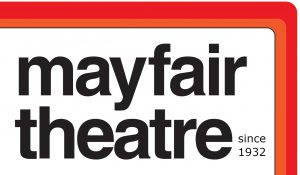Obvious Child
2014 | 83 minutes
OTTAWA PREMIERE | STARTS AUGUST 29
Not so many administrations ago, “Fast Times at Ridgemont High” and “Dirty Dancing” and a handful of other films dared to deal with abortion, off-camera and usually a little off the main plotline, as a medical option chosen by a sympathetic young woman dictated by the machinations of the screenplay, usually with the help of sperm donated by a dislikable supporting character.
Then, gradually and then almost entirely, nobody on screen had them anymore. “Juno,” “Knocked Up” and so many others took a pregnancy to term without many second thoughts, ushering in a narrower set of options. Few, if any, films of any size risked losing half or more of its collective audience (the divides falling along political rather than gender lines) by treating a woman’s right to choose as an acceptable storytelling decision.
In the last couple of decades, we’ve seen more portrayals of audience-friendly serial killers on TV and in the movies than we have of major female characters who terminate an unwanted pregnancy without being overtly punished or covertly marginalized (the gynecological history of Sandra Oh’s character on “Grey’s Anatomy” notwithstanding).
Now comes “Obvious Child,” destined to be known as “the abortion rom-com.” Writer-director Gillian Robespierre’s feature, based on a 2009 short, is built around the persona and the rich, prickly talent of comedian, voice-over artist and actor Jenny Slate. She plays Donna, a fledgling Brooklyn-based stand-up comic whose act is messily confessional and therefore a little tough on her boyfriends.
At the start of the picture, Donna’s latest dumps her for a friend of hers. Then Fate throws Donna a bone, a nice fellow named Max, played by Jake Lacy. They meet at the bar where she’s just done a particularly grisly set, heavy on the relationship bitterness and light on the funny. (Max doesn’t catch the act.) He’s from Vermont and is attracted/affronted by this nervy, needy, quick-witted native.
Their sole sexual encounter leads to a pregnancy and then a decision, but the movie doesn’t rest on that decision. It’s about other matters, a tangle of feelings and late-20-something uncertainties. Throughout its 85 minutes “Obvious Child” avoids turning Donna’s story into an issue, a crisis to be resolved. She does what she feels she should do.
The other key players in Donna’s life her English professor mother, played by Polly Draper; her puppeteer father, played by Richard Kind; and most of all her best friend, Nellie, played by Gaby Hoffmann are there for her and chime in with advice and counsel of variously effective qualities. But “Obvious Child,” which the anti-abortion lobby will loathe, lets the decision and the narrative purpose of the film belong to Donna, first and last.
Some of the bits in this small, extremely good picture are just that: bits, rather than scenes, sketchily developed. But moment to moment, you believe what’s happening in Robespierre’s film, which is funny and rueful in roughly equal measure without being despairing in the slightest. Donna’s stand-up routine is rather routinely raunchy at the film’s outset, but then the off-stage revelations begin, and the scene of her drunk-dialing her ex with a series of misjudged phone messages is just right, snappy but painfully accurate. As Donna and Max get to know each other in reverse, the getting-to-know-you part following the drunken-hookup part, Slate and Lacy flower into remarkable scene partners.
Slate’s work includes the delightful stop-motion YouTube favorite “Marcel the Shell With Shoes On,” plus a season on “Saturday Night Live,” plus a lot more. She’s more than just an idiosyncratic comic; she’s an excellent actress, capable of lightning-quick transitions in mood and temperament. The only available date for Donna’s abortion turns out to be on Valentine’s Day. The day itself holds a surprise or two, as does the whole of Robespierre’s gently nervy, bracingly affectionate movie.
